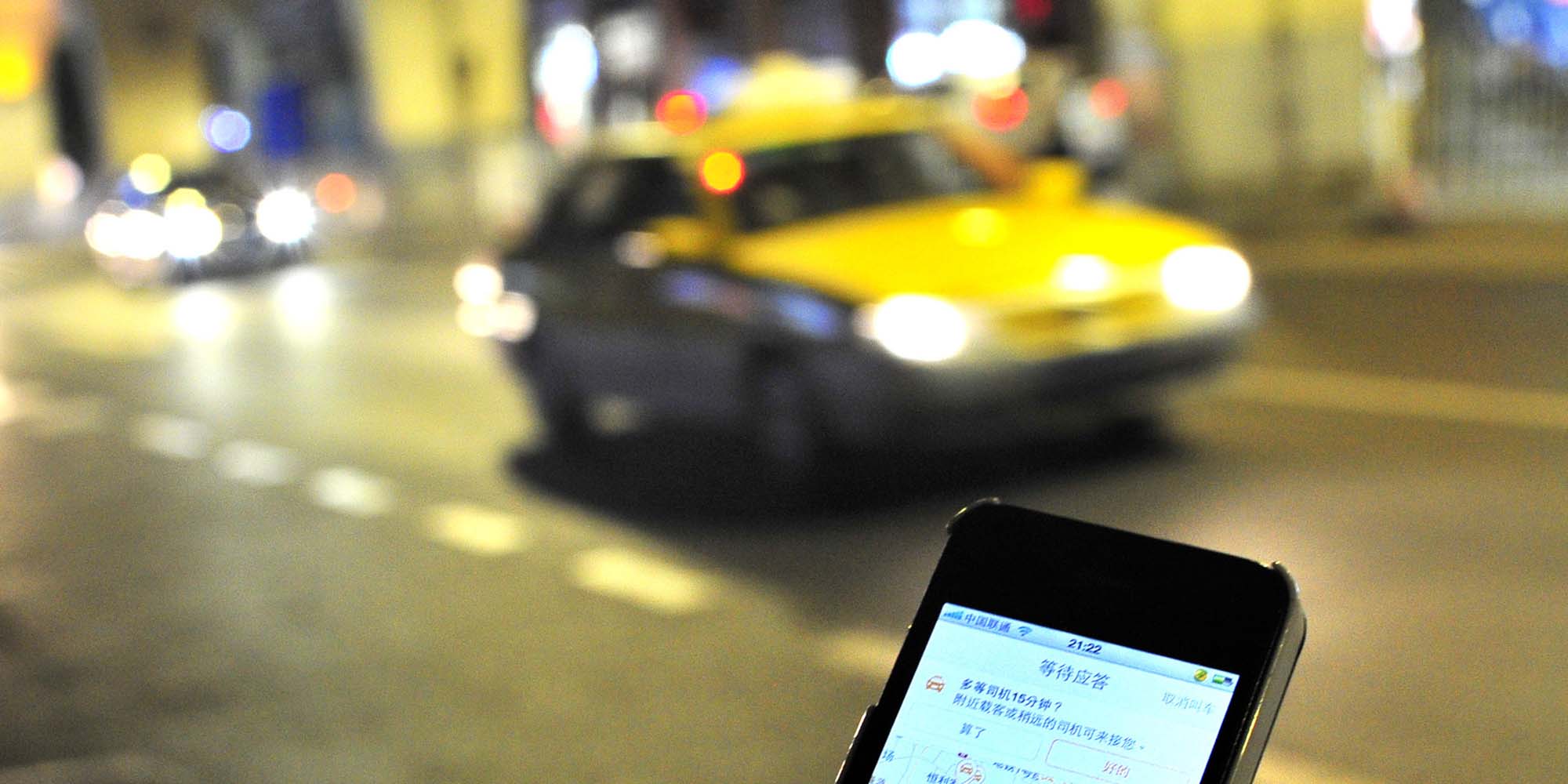


[File Photo]
Two years after wiping the floor with Uber, China’s single-largest car-hailing giant Didi has been mired in a fatal scandal relating to its hitchhike service, with both the government and public calling for a new law to regulate the emerging carpooling industry.
The tragedy, which took place in Zhengzhou, Henan Province on May 5, has led to public uproar following the murder of a 21-year-old female flight attendant by a pinchbeck Didi driver. The victim, who used Didi’s hitchhike service, was found dead in a semi-naked state with multiple stab wounds, while the perpetrator later killed himself by jumping into the local river.
Serving as a carpooling and social platform, Didi Hitch can match people heading in the same direction to travel together. The passenger only needs to pay a fair share of fuel to the driver, while both passenger and driver can rate and tag each other.
In response to the public inquiry, Didi on Wednesday limited its hitch service to daytime, as well as scrapping ratings and reviews of both drivers and passengers, but such remedial measures were insufficient to pacify the fury of the public, who now demand the company tackle its management and supervision loopholes.
“Didi has yet to release any plan to compensate the victim, or to specify its responsibility in the incident. The company has failed to take its social responsibility, while the lack of laws regulating carpooling in China has also indulged Didi’s carefree attitude,” Chen Ziyu, a Beijing-based lawyer, told People’s Daily Online.
Blowing Uber’s China business out of the water in 2016, Didi now controls over 90 percent of China’s car-hailing market, while over 1.05 billion seats were shared via its core hitchhiking service in 2017.
Outlawed carpooling
Hitchhiking services, also known as carpooling, have been welcomed by many countries including China, with its capital issuing a guideline in 2016 to encourage the new traveling method, which can abate both environmental pollution and private costs incurred by solo driving.
Though the service is convenient and has led to cheaper costs, its noncommercial nature somehow exempts platforms such as Didi from taking responsibility when accidents occur.
“Unlike car-hailing services which are a commercial act and thus regulated by law, carpooling doesn’t generate revenue for the drivers, making it a legally gray area,” Chen said, adding that since there is no legal basis ensuring the carpooling standards or safety, it’s hard to say whether Didi is guilty or not in this incident.

Li Mingzhu, a 21-year-old flight attendant, was killed by a pinchbeck Didi driver.
China launched its Interim Measures for the Administration of Online Taxi Booking Business Operations and Services in 2016. The legal document, which is the only national regulation regarding online car-hailing services, vaguely stipulates that carpooling should obey local rules, which most Chinese cities have yet to establish.
Didi has used such legal loopholes to exempt itself from taking any responsibility regarding carpooling accidents. According to its disclaimer, Didi will not be liable to any member in the event that information provided by another member is false or inaccurate, a brush-off which clearly suggests that passengers and drivers carry the entire burden of risk themselves.
The lack of legal regulation has also led to a rampant misuse of carpooling services in China. For instance, Didi Hitch drivers were reported to leave inappropriate reviews of passengers who have no ability to remove the remarks. Comments such as “sexy and beautiful” or “nice body shape” were frequently seen on the service’s review pages, annoying and frightening female passengers.
“New laws should be made to regulate the emerging carpooling service in China,” Li Xiaohong, a researcher from law department, Jiangsu Academy of Social Sciences, told Procuratorial Daily, who added that many nations, such as Germany, have already established a lawful system for carpooling, as well as setting regulatory institutions for the service.
Serving as an origin of carpooling services, Germany passed its car-sharing law in 2017, which even regulates the establishment of parking spaces for car sharing on a country-wide basis.
In response to public outcry, China’s transportation authorities have issued five announcements in one week, noting that “carpooling should be properly regulated,” a claim interpreted by many experts as a sign of readiness for the establishment of a carpooling law in China.
Fierce competition
Didi’s failure in background checks of Hitch drivers has also attracted criticism, with many experts claiming that the company has intentionally loosened its admittance restriction for drivers, who appeared to be “limited resources.”
According to media reports, the perpetrator, who acted illegally by using his father's Didi account, had passed the security checks required by Didi Hitch, while users can even use false personal information to register as a Hitch driver.
“Facing fierce competition in the carpooling industry, the priority for most platforms is to attract as many drivers as possible. This has led to perfunctory background checks of drivers’ true identities,” said Zhong Xiaoyu, an independent writer for news portal Sohu.com.
Though taking the lead in China’s car-hailing industry, Didi’s service has been challenged by many domestic rivals. According to media reports, Meituan Dianping, China’s online shopping platform, picked up the gauntlet in March, taking over 30 percent of the car-hailing share in Shanghai in just one day.
“The incident will urge passengers to consider more about their own safety when using carpooling services, pushing platforms such as Didi to take more action to ensure the authenticity of drivers’ information,” Zhong added.
 Fire brigade in Shanghai holds group wedding
Fire brigade in Shanghai holds group wedding Tourists enjoy ice sculptures in Datan Town, north China
Tourists enjoy ice sculptures in Datan Town, north China Sunset scenery of Dayan Pagoda in Xi'an
Sunset scenery of Dayan Pagoda in Xi'an Tourists have fun at scenic spot in Nanlong Town, NW China
Tourists have fun at scenic spot in Nanlong Town, NW China Harbin attracts tourists by making best use of ice in winter
Harbin attracts tourists by making best use of ice in winter In pics: FIS Alpine Ski Women's World Cup Slalom
In pics: FIS Alpine Ski Women's World Cup Slalom Black-necked cranes rest at reservoir in Lhunzhub County, Lhasa
Black-necked cranes rest at reservoir in Lhunzhub County, Lhasa China's FAST telescope will be available to foreign scientists in April
China's FAST telescope will be available to foreign scientists in April "She power" plays indispensable role in poverty alleviation
"She power" plays indispensable role in poverty alleviation Top 10 world news events of People's Daily in 2020
Top 10 world news events of People's Daily in 2020 Top 10 China news events of People's Daily in 2020
Top 10 China news events of People's Daily in 2020 Top 10 media buzzwords of 2020
Top 10 media buzzwords of 2020 Year-ender:10 major tourism stories of 2020
Year-ender:10 major tourism stories of 2020 No interference in Venezuelan issues
No interference in Venezuelan issues
 Biz prepares for trade spat
Biz prepares for trade spat
 Broadcasting Continent
Broadcasting Continent Australia wins Chinese CEOs as US loses
Australia wins Chinese CEOs as US loses